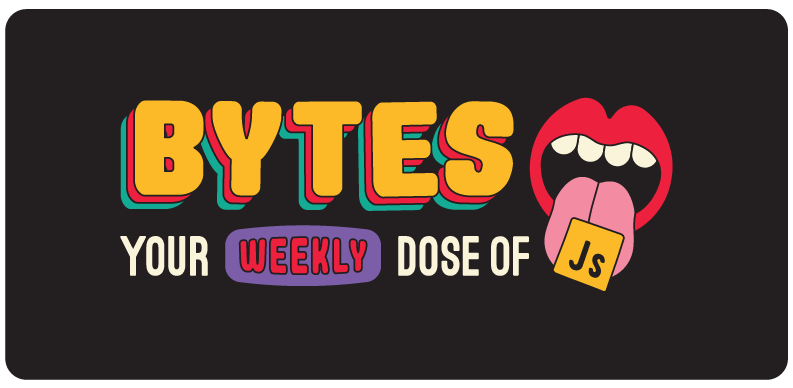Style once, run anywhere

Today’s issue: Where your code goes after it dies, radicalizing AI against humanity, and saloon-style JavaScript.
Welcome to #408.

The Main Thing

React Native devs ready to get hurt again
Style once, run anywhere
As someone who was forced to wear a lot of “unisex” hand-me-downs from my older sister growing up, I’m naturally skeptical of uni- labels.
But when Jacek Pudysz released Unistyles 3.0 last week, I nobly put my old prejudices aside to learn more about this React Native styling library that claims to let you share “up to 100% of your styles” across all platforms with no re-renders.
How on Earth does it do this? With some good old-fashioned native code.
Unistyles is a superset of React Native’s StyleSheet API (like TypeScript is to JavaScript), but it has a custom C++ core that tracks, caches, and updates your styles without triggering any of the usual re-renders.
Every style you define gets compiled into a high-performance C++ representation that knows exactly which “reactive inputs” it depends on – like your theme, orientation, or keyboard visibility.
The result: When any of those inputs change, Unistyles updates only the affected styles directly in native views, with no hooks, no context, and no re-renders. The custom C++ parser also makes sure styles behave consistently across iOS, Android, and the web.
Other goodies include:
-
Superpowers for your React Native
StyleSheets– Scoped themes, compound variants, CSS pseudo-classes, web-only styles, custom web rendering, and more. -
More perf boosters – It’s tightly integrated with the New Architecture’s
Fabricrenderer and leverages Nitro Modules and JSI bindings for faster updates. -
Deep integration with
react-native-reanimated– So your animations and styles stay perfectly in sync without extra wiring.
Just keep in mind that Unistyles is meant to be a drop-in replacement for React Native’s StyleSheet, not a drop-in component library, so you’ll still need to build a design system (or borrow someone else’s). It also doesn’t process Tailwind classNames on native, if that’s your jam.
Bottom Line: If Unistyles can really deliver cross-platform styles with web-like performance, maybe I can finally stop thinking about all those jokes my sixth-grade classmates made about my jeggings cool unisex jeans.

The Main Thing

When your test suite doesn't take 2 hours to deploy anymore
The easy way to speed up your team’s release cycles
What if you could wave a magic wand to speed up your release cycles and save your team money?
That’s exactly what QA Wolf did for Thirty Madison, and the results are pretty incredible:
- Increased test cases by 10x in one year
- Saved $1 million per year in QA engineering costs
- Saved developers 20% more time from slow QA cycles
Watch the case study to see the CTO of Thirty Madison share exactly how QA Wolf did it.
Or, set up your own personalized demo to learn how they could help your team.

Cool Bits
-
Miguel Salinas used AI to analyze database trends through 1.8 million Hacker News headlines. If there’s anything that could radicalize AI to turn against humanity, forcing it to read millions of HN posts has got to be in the top 5.
-
The Callstack team just announced that they’re bringing
Node-APIsupport to React Native. -
CodeRabbit’s free VS Code extension gives you line-by-line AI code reviews right in your IDE. It’s like having a senior developer give you feedback on every line of code, then provide one-click fix suggestions, so you can clean up your mistakes fast. [sponsored]
-
jsdate.wtf is a fun little quiz to help you see how well you know JavaScript
Dateclass. Not to be confused with The Impossible Quiz that every middle-school kid was obsessed with in early 2000s. -
Reaper is an open-source SDK for finding dead code and
claiming its soul for the dark lorddeleting it. -
LangFast is a JSFiddle-style playground to test and share AI prompts.
-
The State of DevSecOps report takes real-world data from thousands of organizations to uncover key findings like how deployment frequency impacts out-of-date dependencies, what security risks are most common right now, and more. [sponsored]
-
James Sinclair wrote about the difference between ordinary functions and arrow functions in JavaScript. It’s a good article, and James’s website makes it feel like you’re reading about JavaScript in an old-timey saloon while waiting for your next shift building the Union Pacific Railroad.
-
Two guys in Michigan hated using Comcast so much that they built their own fiber ISP to compete with it. The heroes we deserve.
-
METR (a nonprofit AI research org) just published their study results on how AI tools affect the productivity of experienced open-source developers working on their own repositories. Turns out, AI made them 19% slower. Great work everyone, see you next week.